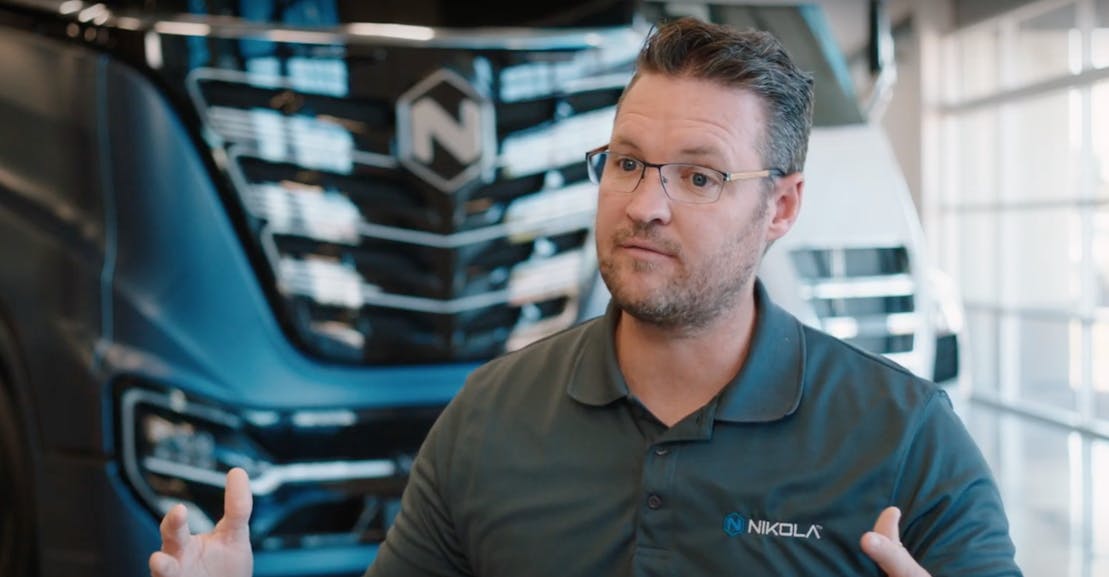“There’s very few people that can out-Elon in this world, and I’m one of them,” said Nikola Motor founder Trevor Milton earlier this summer. Milton’s 35 percent stake in the hydrogen-electric vehicle company—like Musk’s EV company, named for Nikola Tesla—made him extraordinarily rich when the company went public in June, its value shooting up to $27 billion. The success has been reflected in Milton’s boisterous social media presence, where, between tirades addressed to his “haters,” he’s boasted about having bought his father a private plane. Many have compared Milton and Musk. But whatever you think of Elon Musk, he’s managed to do something that Milton hasn’t yet: manufacture and sell cars. Amid allegations of fraud and reported federal investigations, Milton resigned from Nikola Monday morning.
Energy wonks had been skeptical of Nikola’s claims for a while. But the real catalyst for Milton’s downfall came September 10, when Hindenburg Research, which has shorted Nikola shares, released an extensive report that accused the company of spinning an “ocean of lies” about its supposedly cutting-edge hydrogen and battery technology. Hindenburg alleged, for instance, that the company staged a video claiming to show a working model of its “Nikola 1” truck, positioning it atop an incline and rolling the vehicle downhill. Much of the breakthrough technology it promised, the report also alleges, has been outsourced. The Securities and Exchange Commission, the Department of Justice, and the U.S. District Court for the Southern District of New York are all now reportedly taking a closer look at the company’s books, according to Bloomberg and the Financial Times, with a class-action lawsuit in the mix; none of those bodies, however, have confirmed their investigations to the press as of Monday afternoon. Complicating matters, Nikola has also allegedly reached out to the SEC, reportedly urging it to investigate Hindenburg because the research firm stands to gain if the company’s shares fall.
Amid the messy debacle now playing out, one or two things seem clear. First, at a time when the health of the stock market has diverged starkly from the health of the world, investors’ prior enthusiasm for Nikola seems like yet another example of their strained relationship to reality. And second, Nikola’s chaos should be a cautionary tale for those who expect wunderkind CEOs to deliver the breakthrough technologies that will power the way to a low-carbon future.
Decades of ideological priming have taught many to believe that Wall Streeters and tech company founders are geniuses—the best people to plan everything from which stocks to buy to how to solve the climate crisis. It’s why federal policymaking largely defers to the private sector to deliver much-needed innovation, subsidizing it with public funds meant to be turned into private profits that will somehow lead to societal gains.
Tax breaks and early-stage research funding for projects clearly in the public interest, like those boosted by the American Recovery and Reinvestment Act in 2009, are well and good. But as politicians consider how to respond to both this recession and the climate crisis, the Nikola story is a good example of why government taking a more active role in driving the energy transition might lead to better and less chaotic results. After all, the state can’t be any worse at deciding what’s best for people and planet than the collection of wealthy goons who decided that Trevor Milton should be a billionaire.
